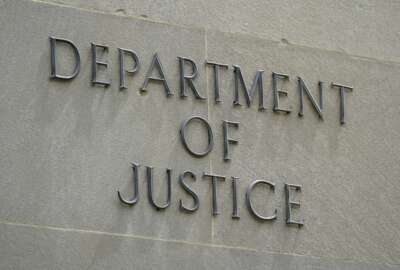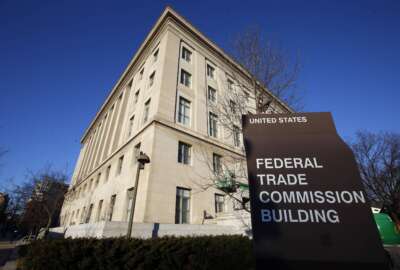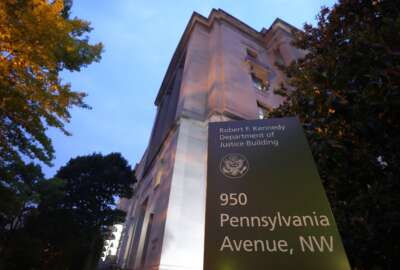This federal lawyer got a settlement from a powerful industry after a 20-year dispute
When you hit that convenience store for a pack of smokes, you might notice the warning sign. That's thanks to my next guest. She produced a settlement in a long...
When you hit that convenience store for a pack of smokes, you might notice the warning sign. That’s thanks to my next guest. She produced a settlement in a long running dispute with the tobacco industry about retail signage. For her tenacity and skill, she’s a finalist in this year’s Service to America Medals program. The assistant director of the consumer protection branch of the Justice Department, Lisa Hsiao, joined the Federal Drive with Tom Temin to discuss further.
Interview Transcript:
Tom Temin And I want to ask you about another case that was cited in your Sammie’s Award. And congratulations on that, by the way. And that is a $5 billion settlement with Facebook. Golly, I thought I remembered that one. But tell us what happened there.
Lisa Hsiao So that settlement, like all of the cases I’ve been in, cannot take credit myself. There are many other people involved. The Facebook settlement was actually negotiated by the Federal Trade Commission and referred to the Justice Department, and then the Justice Department took that settlement. We tweaked it a little bit and we ended up filing it and defending the settlement itself. The settlement resulted because Facebook had basically been misleading consumers about how it was using their information. And I just as an example that many people can probably relate to, if you have an app and you have a Facebook account. Many people report, for example, their running times on using Strava or an app like that, and they put on Facebook, Oh, I ran ten miles today. Well, Facebook didn’t tell people that they were sharing not only your information with people that were your Facebook friends, but also your Facebook friends friends. So your information was going much further than Facebook had been representing. And so it was that type of allegedly unfair and deceptive conduct that led the FTC and Facebook to settle that actually resulted in a $5 billion payment, which was unprecedented and remains unprecedented in this type of FTC civil penalties case.
Tom Temin And that money went to the Treasury, that is to say. But consumers didn’t get $0.40 a piece or anything like these class action suits.
Lisa Hsiao No. And a lot of people, including consumers, reach out to us all the time when we win a civil penalty suit saying, hey, where’s my money? There are many times where we actually do collect money and give money back to consumers where they have lost money. In the Facebook case, that was not applicable because there were not, that we could tell, consumers that actually had lost money as a result of this deal. It was more sort of the ephemeral data cost and your privacy cost. So in that case, we didn’t give back money, but we we do give back remedial relief in many cases.
Tom Temin Sure. But is the model of the Justice Department then backing up what is ruled by the FTC? Is that a fairly common model?
Lisa Hsiao It’s not exactly ruled by the FTC. There’s a statutory framework, which is the FTC, Bureau of Consumer Protection investigates allegations of wrongdoing. And then when they determine that there’s enough to bring a case against somebody and seek civil penalties, then they are required to refer to the Justice Department. And so we take cases that both the FTC has settled and we also take cases that they they have not been able to settle. And so we’ve we’ve had some very significant litigated cases, including a case against Dish Network for telemarketing and millions and hundreds of millions of telemarketing violations and a case against mylife.com for deceptive marketing of background reports online.
Tom Temin And in the tobacco settlement, with respect to labeling, I thought everything having to do with tobacco had been settled already. But tell us about that recent development.
Lisa Hsiao The tobacco case that was brought by the United States and several public health entities like the Campaign for Tobacco-Free Kids. That case has been going on for 23, 24 years now, was filed in 1999. The plaintiffs won and we won a big injunction. No money. We won a big injunction. And that’s what resulted in all of those little white boxes on the magazine ads. That’s what resulted in no longer being able to advertise on TV. But what was the last piece that had not been resolved? And the tobacco companies continued to fight, was having to post signs in retail stores, basically saying a federal court has ordered that we have to tell you that tobacco can kill, secondhand smoke kills, etc.. That was the result of, again, not just me, I just happened to be leading the ship at the time when it settled. But a group of attorneys in consumer protection branch that saw the opportunity for a settlement based on ongoing litigation and took it upon ourselves to go to the tobacco companies and say, Hey. We think we might be able to settle. And so we had three or four months of ongoing calls with them. But ultimately the parties were able to reach a resolution and that was ultimately entered, I believe, last fall some time. And so now we’re going to see signs, I think, starting next month in retail stores, if not already, may have already been started.
Tom Temin We’re speaking with Lisa Hsiao. She is assistant director of the consumer protection Branch of the Justice Department and a finalist in this year’s Service to America Medals Program. And you’ve mentioned a couple of times there’s a team that does that. And yet you were named for tenacity and your ability to really stick through a case to resolve these things that can run for a long time. So what is your motivation in doing this kind of work?
Lisa Hsiao For me. I feel like unlike a lot of Big Law work, and I was in private practice for a long time before I came to the government, the cases that I do are not just about pushing money around. It’s about using the enforcement power of the government to really help consumers by going after not only scammers. And we do we go after a lot of scammers, both civilly and criminally, but also going after some of the biggest companies in the world to prevent them from taking advantage of people, from misleading people, from ripping people off in some cases, for example, continuing to charge you for a subscription you didn’t know you signed up for two years ago and then making it impossible to cancel. And so I feel very committed to the work that my branch does and really happy to advance that. And it is not always easy. We have much fewer resources than Big Law or these very large companies. But I feel like it’s very worthwhile and the precedents that we make will last long and they will be able to be used by other people, including consumers and other future administrations, to continue the work that we’re doing.
Tom Temin Did you guys have anything to do with the big recent settlements with those ticket brokering companies, as the president even mentioned it?
Lisa Hsiao We have not, at the Justice Department, taken any action about it, but that does not mean it’s not going to happen.
Tom Temin What else have you got cooking?
Lisa Hsiao Well, we just filed a major settlement with Amazon into basically how it treated children’s information, how the Alexa program collects children’s personal information. And Amazon agreed to pay $25 million to settle allegations that they were retaining children’s personal information for too long. And they were deceiving parents or misleading parents about how they were storing kids information. In some cases, parents were requesting kids information be deleted and it wasn’t deleted. And a lot of people don’t understand that Amazon is actually keeping your kids recordings. We just filed a case like that. We just filed a major settlement against Microsoft for $20 million, same type of thing. Microsoft, Xbox Live was basically collecting kids information and not telling parents or seeking parental consent ahead of time. And then last winter, I guess we or maybe this past winter in January, we had a $275 million settlement against Epic Games, which makes Fortnite. Basically Epic knew kids were playing Fortnite online and was doing nothing to get parental consent, and so they agreed to pay a big settlement and basically completely overhaul the way that they contact parents to get their consent for their kids to play these video games online. So lots of stuff happening.
Tom Temin And if you look at some of these cases, there is an underlying theme here, and that is there’s a data and algorithmic component to this. And all we hear about now is the rise of algorithms and applications that use them, artificial intelligence. Do you get the sense that that is something that is going to increase in coming years?
Lisa Hsiao Absolutely. With respect to artificial intelligence, I will add that one of the challenges of the work that I do is that there is no federal data privacy law. And so all of these cases that we’re doing are shoehorned into the idea that companies are misleading consumers about how it keeps or how they keep and use their data. I mean, as probably every consumer knows, you go to any website and it asks you to accept cookies and probably 99% of people just click, yes, I accept all these cookies. And so I think that there is a lot of space for a data privacy law that requires companies to use much greater safeguards. And I think AI is only going to enhance that because people feel much freer talking to AI and getting answers than they do typing information in. So I do see that that is coming down the pipeline probably pretty soon, I would guess.
Tom Temin And I guess a final question is, lawyers such as yourself that deal with these kinds of issues, you really need a lot of specialized knowledge in technical areas, maybe more so than in earlier generations.
Lisa Hsiao Yes, although because most of these cases use the Internet most, I will not include myself as a young lawyer, but most young lawyers today are very familiar with these things, far more than us old guys. And so a lot of it is just what is a a reasonable consumer experience. And then, yes, sometimes we do have to hire experts with more technical knowledge. What I really love about the cases that I do is that people understand what it is that we are, what we’re going after these companies for doing because everybody experiences it. And so I feel like our branch doesn’t get enough publicity and credit for all of the work that we do in areas that affect Americans every day.
Copyright © 2025 Federal News Network. All rights reserved. This website is not intended for users located within the European Economic Area.
Tom Temin is host of the Federal Drive and has been providing insight on federal technology and management issues for more than 30 years.
Follow @tteminWFED






